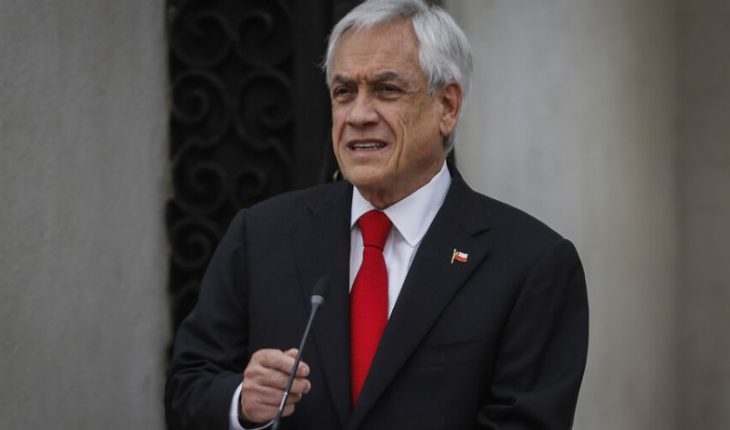President Sebastián Piñera produced a document setting out the ten points that would be “essential” in a possible new constitution. The three-page text, as consigned by The Third, has circulated among ministers of state and states that the “Constitution does not solve all the problems of society, but it must be the institutional framework within which politics, laws and life in society unfold”. In doing so, he adds that “during the constituent process, there must be an attitude of dialogue, agreements, goodwill and a spirit of unity and mission to be fulfilled”. According to the text, the first point is the role of the State, where it is raised that the country should be a democratic republic with a rule of law, in which the State is more supportive and at the service of individuals. He also argues that the family is the fundamental core of society. He then talks about civil and political rights, where the state must respect and promote human rights. Ensuring equality of all before the law and protection from any discrimination or abuse.As a fourth point it exposes economic, social and cultural rights, where it includes education, specifying that it must be mandatory and financed by a free system, up to middle education. This suggests that individuals have the right to open educational establishments and parents have the right to choose the establishment for their children. As regards health, it submits that the State must ensure free access to health benefits. Each person must have the right to choose the health system to which he wishes to benefit, whether state or private. And on pensions, it closes with the fact that the State must take steps to ensure that all people have pensions that allow them to live worthily.As the fifth point encompasses inclusive and diverse society, adding that the Constitution must contemplate greater mechanisms that allow early citizen participation in some public decisions that are very relevant to the Nation.Public order is the sixth point, followed by the safeguarding of the environment. Eighth, he talks about the separation of the powers of the State, where in addition to precise that independence must be established and respect for the final and enforced judicial judgments and international treaties ratified by Chile and that are in force, the autonomy of fundamental bodies for the Republic such as the Public Prosecutor’s Office, servel, the Contralorie or the Central Bank must also be recognized. of the authorities and transparency of the State, where it states that no person can be conferred other authority or rights than those expressly conferred on them under the Constitution or the laws. And finally, it talks about decentralization, where state bodies must promote the strengthening of regionalization of the country and equitable and solidarity development between regions, provinces and communes.
translated from Spanish: Piñera raised the ten “essential” points that should include a new Constitution
September 13, 2020 |





